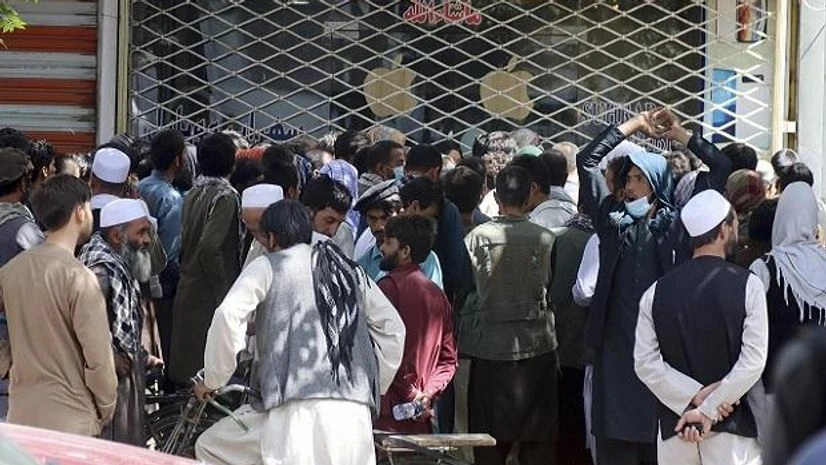India on Tuesday said that the global approach to address the Afghan crisis must be guided by the recent UN Security Council resolution demanding that the territory of Afghanistan must not be used for terrorism and that a negotiated political settlement should be found out to the conflict.
Foreign Secretary Harsh Vardhan Shringla, in a virtual address at an event, said resolution 2593 specifically refers to terrorist individuals proscribed by the UN Security Council (UNSC) including those belonging to Lashkar-e-Taiba and Jaish-e-Mohammad.
Shringla said there was recognition of the need to uphold human rights, including of women and minorities, and to encourage all parties for an "inclusive, negotiated political settlement" and that India expects the international community to remain both responsive and united to deal with the Afghan crisis.
He said India's friendship with the Afghan people will continue to guide its approach in the future, noting that it is concerned about the developments within that country and their external repercussions.
The foreign secretary also said that the UNSC resolution, adopted during India's presidency of the global body last month, also sets expectations on safe passage and secure departure of Afghans and all foreign nationals who wish to leave that country.
Also Read
"The UNSC resolution 2593 unequivocally demands that Afghan territory not be used for sheltering, training, planning or financing terrorist acts; and specifically refers to terrorist individuals proscribed by the UN Security Council, including Lashkar-e-Taiba and Jaish-e-Mohammad," Shringla said.
"The resolution also sets expectations on safe passage and secure departure of Afghans and all foreign nationals from Afghanistan. There is recognition of the need to uphold human rights, including of women and minorities, and to encourage all parties for an inclusive, negotiated political settlement," he said.
He said there was a reaffirmation for responding to the desire of Afghans to sustain and build on Afghanistan's gains over the last 20 years.
The UNSC resolution, adopted on August 30 under India's presidency of the global body, demanded that Afghan territory should not be used to threaten or attack any country or to shelter and train terrorists and plan or finance terrorist attacks.
"Our collective approach has been articulated by UNSCR 2593. It is only by remaining true to the principles professed therein that we can make a meaningful contribution to Afghanistan at this time," Shringla said.
"As for India, our long-standing investment in the people of Afghanistan has earned us tremendous goodwill and cemented the civilisational bond between our two countries. Our friendship with the Afghan people will continue to guide our approach in the future," he said.
The foreign secretary said the UNSC resolution comprehensively addressed the main pending issues relating to Afghanistan.
"Subsequent to the recent changes in Afghanistan, our immediate focus has been the evacuation of Indian nationals from Afghanistan. Most Indian nationals were able to leave Kabul in August," he said.
Shringla said a number of Afghans, including minorities, who were desirous of travelling to India, also managed to do so.
"But these processes could not be completed due to the security situation at the airport. Resumption of flights from Kabul airport is, therefore, a priority. We are closely monitoring the unfolding situation," he said.
He said as a neighbouring country of Afghanistan, India is naturally concerned about the developments within that country and their external repercussions.
"India has a civilisational relationship with the Afghan people and those long-standing links guided and will continue to guide our approach," Shringla said
The foreign secretary highlighted India's development partnership with Afghanistan saying it includes more than 500 projects spread across each of the 34 provinces of that country and they cover critical areas such as power, water supply, road connectivity, healthcare and education.
"India's destiny is inextricably linked with its neighbours. The countries in our neighbourhood are of unique and special strategic significance to India," he said.
Shringla said capacity building and training have been one of the main levers of India's development partnership with Afghanistan.
"Under our development assistance programme, we have built primary and secondary schools, colleges and universities across Afghanistan. More than 65,000 Afghan students have studied in India," he added.
(Only the headline and picture of this report may have been reworked by the Business Standard staff; the rest of the content is auto-generated from a syndicated feed.)

)
